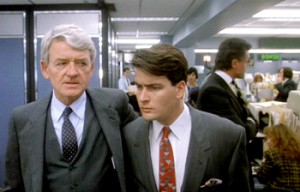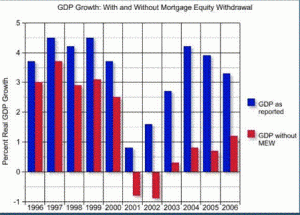 Lou Mannheim: Kid, you’re on a roll. Enjoy it while it lasts, ’cause it never does.
Lou Mannheim: Kid, you’re on a roll. Enjoy it while it lasts, ’cause it never does.
Imagine how small the world of poker would be without debt. What would happen to poker if a large number of players stopped being able to pay back what they owed? Some generous players and backers would get burned and the rest, including the online sites, would decide the risk of lending and sponsoring players was too great. As attendance at tournaments started to shrink, prize pools would diminish as well — resulting in even fewer players willing to put up the buy-in. The downward spiral would be hard to break.
I’m not sure when I first realized I had become Lou Mannheim, the character played by Hal Holbrook in the movie Wall Street. But at the office, there’s no question I channel his spirit every time an office pool springs up. Whether it’s the closing price of the Dow or the front-month contract price for oil futures, I’m always the pragmatic pessimist in a sea awash with Bud Fox-esque dreamers.
Some of it is just time in the trenches. I’ve seen a lot of markets, from exuberant to suicidal, from bubbles to painful corrections. And like a veteran poker player, you start to know what’s fueling a good run – skillful play or dumb luck. Post-2002 investors are like newbie poker players, who think it’s the ultimate bad beat when their aces get cracked in a loose nine-handed game — while still nursing a triple-digit gain dream.
I’ve taken some sick losses in this market, don’t get me wrong. And I’m not alone. There’s a fair share of Nobel prize winning financial wizards and economists who’ve had their asses handed to them over the last few months. But I’ve kept some cash on the side and haven’t invested a new dime in the market since just before the 2007 WSOP, when I stuck some money in a Treasury ETF – a position I probably should unwind soon.
 Even before the housing bubble turned into a full scale financial crisis, it was pretty obvious that our market run of the last few years was being fueld by cheap overseas labor and even cheaper credit. I’m sure you used to receive a 0% credit card offer or a six-figure home equity loan teaser once a week, just like I did. The ones that used to make me laugh were addressed to “Doe Oil,” an obvious mailing list error based on one of my screen names, “oil doe.” It was the equivalent of every free-play poker newbie getting an offer to become a Full Tilt Pro.
Even before the housing bubble turned into a full scale financial crisis, it was pretty obvious that our market run of the last few years was being fueld by cheap overseas labor and even cheaper credit. I’m sure you used to receive a 0% credit card offer or a six-figure home equity loan teaser once a week, just like I did. The ones that used to make me laugh were addressed to “Doe Oil,” an obvious mailing list error based on one of my screen names, “oil doe.” It was the equivalent of every free-play poker newbie getting an offer to become a Full Tilt Pro.
But even knowing all that, I was still surprised when I saw the chart, above, in John Mauldin’s newsletter. Seems like the vast majority of our economic growth since 2001 has been fueled just by people’s home equity debt (Mortgage Equity Withdrawal), enabled by the emerging housing bubble and banks all riding the rush. If home equity borrowing were our only problem, we’d be in pretty tight straights. But that’s really just the tip of the iceberg at this point.
I’ve seen a number of investing screeds about pending inflation. Their’s is a classical argument that opines that the influx of money (through government bailouts, low interest rates, and stimulus spending) will be currency’s ruin and ultimately overheat the economy. But they’re only looking at what’s going in – not what has already come out. In October 2007, the value of the the world’s stock markets peaked at $62.5 trillion. On Friday I checked Bloomberg, it was hovering at just over $29 trillion — that’s over $30 trillion lost out of the markets in just over a year. And when Ben Bernanke first postulated that TARP be used to buy up “toxic assets,” I wondered what he was smoking. By the end of 2007, the credit-default swap (CDS) market alone was valued at $45 trillion. And its been estimated that about $20 trillion of the CDS market was just speculation, and not hedges against mortgage portfolios. The entire GDP of the US was only $13.8 trillion in 2007.
A lot of banks got burned playing the rush. The rest of the banks are reluctant to lend into an economy that’s shedding a half a million jobs a month, lest they end up like their reckless peers. And even the consumers that have the buy-ins are reluctant to part with the dough – knowing they could go out in the next wave of layoffs. Any way you look at it, our economic game is going to be a lot smaller for a long, long time.
2 Comments